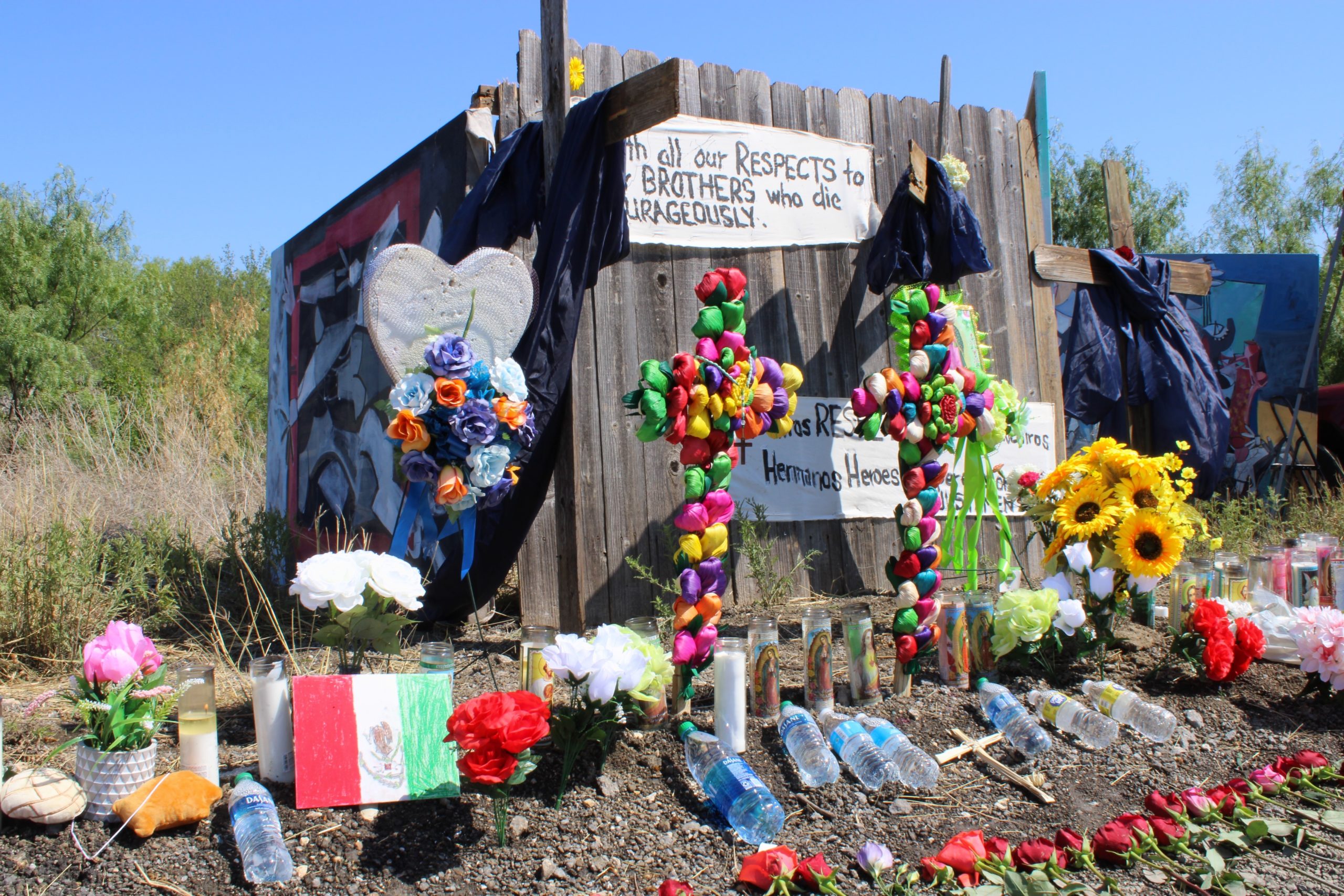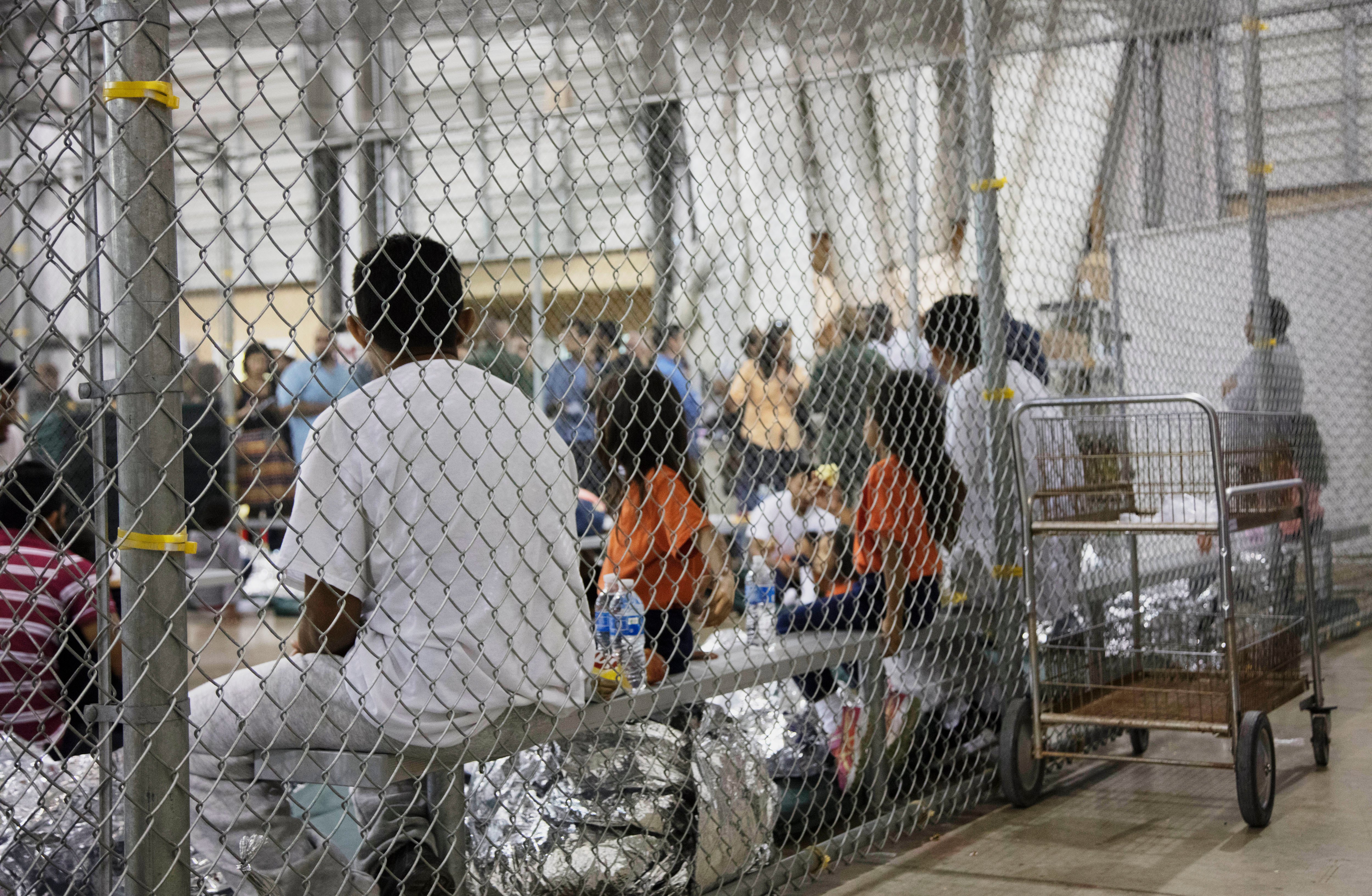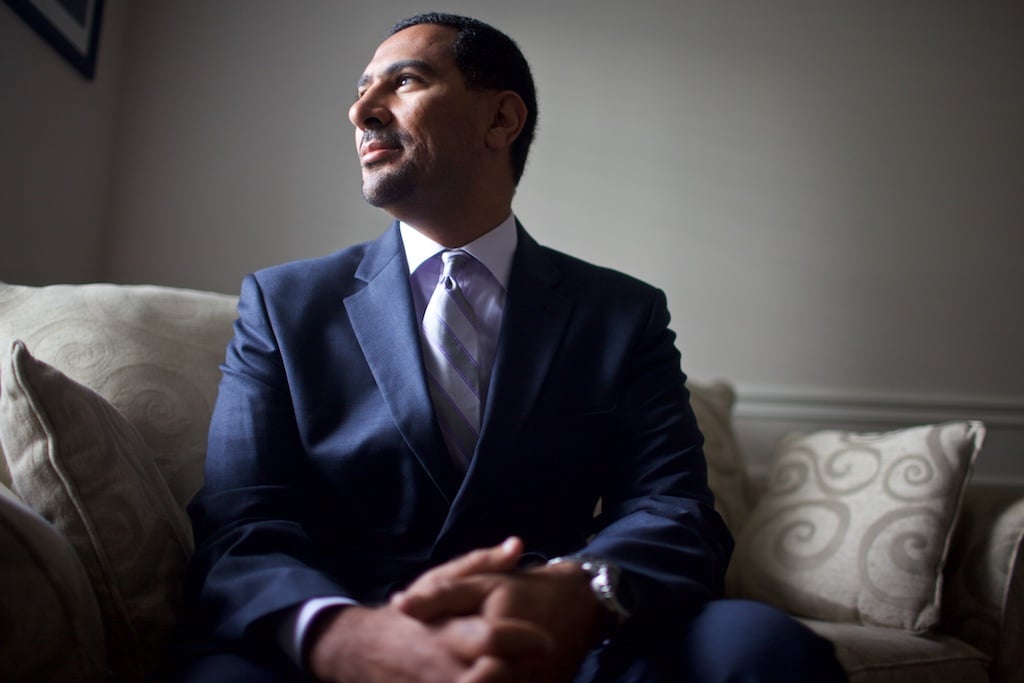
Mohamed’s Fight
He’s a Texas Republican and an expert on fighting extremism. Why do conservatives hate him?
Above: Mohamed Elibiary at home in Dallas
Mohamed Elibiary might be the only Texas Republican accused of belonging to the Muslim Brotherhood. But, he’d like everyone to know, just for the record: He is not now, nor has he ever been, a member of the Brotherhood, nor has his father or his father’s father. (The Brotherhood was founded in Egypt in 1928, or else he’d go further back.)
The Egypt-born, Plano-based security analyst has been fielding allegations like this for years, though their only proponents are a small but vocal conservative faction, like those who stalk him daily online. On Sept. 3, when Elibiary announced on Twitter that he had resigned from the Homeland Security Advisory Council—a group that advises the secretary of homeland security—the reaction from his legion of right-wing haters was immediate: “Off to fight with ISIS are you?” asked one. Another: “What will the Muslim Brotherhood have you doing to undermine this country next?” An article on Glenn Beck’s site, TheBlaze.com, suggested that Elibiary had resigned because “mounting criticism” from the right “was becoming a liability issue, not only to the Obama administration but to our national security.”
A GOP dominated by figures like Dan Patrick is unsustainable—and Elibiary is partly back in Texas because he wants to make sure that Islamophobia and overhyped terrorism fears don’t dictate state policy.
A conservative Christian newsletter spelled out the threat more clearly: “We have been targeted. Texas conservatives are on the front lines in an all out assault from the Muslim Brotherhood and one of their most effective promoters is a Texas Republican.”
Elibiary gets a kick out of the alarmist newsletter, but not the outright racism and vitriol directed at him almost every day. The truth about his return to Texas, though, is less provocative than conspiracy theories. After five years of shuttling between Washington, D.C, and his Plano home, Elibiary wanted to escape D.C. before the chaotic election season and to take the lessons he learned advising the secretary back home. He also wanted more time with his wife and three daughters, one of whom is a second lieutenant in the JROTC.
At an Austin coffee shop one evening, Elibiary, 39, wears a button-down Texas-flag shirt that one could view as a rebuttal to claims that he’s somehow unpatriotic. His public image is one he clearly cultivates. On Twitter he recently posted a photo of himself astride a motorcycle, wearing a stars-and-stripes bandana and a leather bike vest. The photo is captioned: “At risk of stereotyping, this is how all Centrist #Conservative #Texas #Republican #Muslims look.” Elibiary is not shy, and he likes to argue. Even before we meet, when I tell him that I’m an editor at a Middle East policy journal, he forwards me an email from seven months ago that he had sent to the journal’s editors titled, “attack upon me.” He never received a response. I get the feeling that he sends out a lot of emails like this. Though he tells me he’s gotten enough publicity to satisfy any ego, he has no shortage of topics to address.
“I defend the American Muslim community. That’s the thing that irritates the right wing about me—it’s that I’m not just a security expert who talks about security issues like an analyst would, I also take those security credentials and push back against Islamophobia,” he says.
“A lot of the people in the right wing are having their own identity crisis, and the only way they can define themselves is vis-a-vis an adversary.”
Elibiary is an unusual choice for an adversary. A member of North Texas’ Collin County GOP for 20 years, he supported John McCain for president in 2008 and Rick Perry in two gubernatorial campaigns. He has a secret security clearance from the government and is known as a de-radicalization expert, steering wayward Muslim youth away from extremist causes. If that wasn’t enough to dispel right-wing conspiracy theories, Elibiary received the highest FBI award for civilians in 2011 for “selflessly” assisting the FBI in “uncovering criminal activity,” according to an FBI press release. And, when it comes to social issues like abortion and gay marriage, Elibiary says, “I’m socially more conservative than the Christian right—but I also don’t believe that you should legislate morality.”
Elibiary’s conservative credentials, however, don’t preclude him from defending the Brotherhood. When Egyptians overthrew Hosni Mubarak on Jan. 25, 2011, and elected a president from the Brotherhood’s political party a year later, it felt like things were looking up for political Islam. Elibiary kept silent. In private, when law-enforcement officials asked him if the Brotherhood, whose rhetoric had grown harsher toward Israel, was going to declare “war on the West,” he responded simply: “No.”
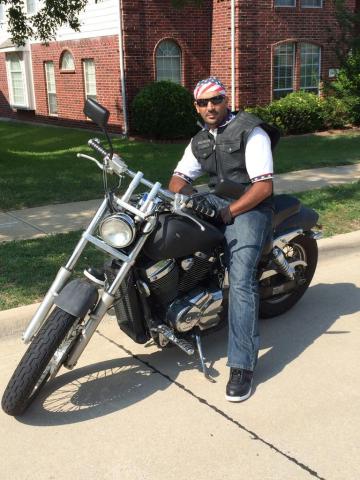
By 2013, Egypt’s new President Mohamed Morsi would be in jail and hundreds of his Brotherhood followers massacred by the army at Cairo’s Rabaa al-Adawiya Square. The day of the massacre, Elibiary changed his Twitter avatar to the “Rabaa” sign—a four-finger salute condemning the oppression of the Brotherhood. For Elibiary and millions of Egyptians, Morsi’s demise was a matter of democracy—a legitimate, elected government had just been overthrown by the military.
This outspokenness enraged his critics, the most hostile of whom view Islam itself as a malevolent force. U.S. Rep. Louie Gohmert of Texas has unsuccessfully attempted to convince Congress that the Department of Homeland Security has been infiltrated by the Muslim Brotherhood. In July 2012, Gohmert told then-Secretary of Homeland Security Janet Napolitano that Elibiary had leaked confidential homeland security documents to slander Rick Perry. During a committee meeting, Napolitano dismissed the claims and said she was bothered by Gohmert’s leveling of “allegations against anyone who happens to be Muslim.”
Elibiary explained his defense of the Brotherhood by citing Gen. David Petraeus’ distinction between “reconcilables” and “irreconcilables,” in other words, those whom the United States can and can’t work with. The Brotherhood, he believes, is a reconcilable.
These are distinctions that some, like Gohmert, refuse to grasp. Instead, fear abounds—of terrorism and foreign infiltration, with Elibiary as a source of inspiration (or validation) for conspiracy theories. It’s not a coincidence that the majority of attacks on Elibiary began after Barack Obama’s election: After all, if the president himself is a secret Muslim, of course he would back advisers like Elibiary, who are eager to subvert “American” values and encourage alliances with Islamists. During his campaign, Lt. Gov.-elect Dan Patrick warned in a TV ad of “ISIS terrorists threaten[ing] to cross our border and kill Americans.”
Elibiary is not pleased with the “ascendancy of ultra-conservatism” in the Republican Party in Texas. He sees a distant future where the Democratic Party is more competitive in the state due to shifting demographics. A GOP dominated by figures like Patrick is unsustainable—and Elibiary is partly back in Texas because he wants to make sure that Islamophobia and overhyped terrorism fears don’t dictate state policy.
“Texas in my opinion is their Alamo. If they lose here, they’re done,” he says.
In 1983, when Mohamed was 7, his family moved to Texas from the coastal city of Alexandria, Egypt. It’s not a “sexy immigration story,” he says—Mobil Oil had transferred his father, a petroleum engineer and former officer in Mubarak’s army, to its Dallas office.
Mohamed soon discovered that he could count the other minority students at his elementary school on one hand. The other kids were unkind and bullied him. “Go back to Iran or Iraq,” they would tell him, or “whatever they heard on the news at the time.”
“I never liked bullies throughout my whole life. People come and I see them bullying—there’s a visceral reaction in me that just wants to take a two-by-four right to their forehead, rhetorically speaking.”
The Dallas suburb of Richardson, where the family soon moved, was slightly more accommodating, as it was home to a growing Arab and Muslim population. From 1990 to 2000, the immigrant population in North Texas grew by 150 percent, to more than 750,000 residents, including many from the Middle East who are Muslim, according to a study by Dallas International. The Muslim community in Denton opened North Texas’ first mosque in 1981 and its first Muslim cemetery in 1990.
But at the time, Elibiary was more influenced by Ross Perot, who gave a lecture at Richardson High School that helped shape his fledgling Republican views.
“I was kind of naive, but was really into the whole idea of, ‘Oh my god we’re going to go bankrupt,’” he says. “I wanted to get my piece of the pie and it wasn’t going to happen if the country goes bankrupt. … I liked the idea of personal responsibility, the ideas of free-market entrepreneurism. Those are the values that really attracted me to it.”
Elibiary worked at a dot-com in the late 1990s as a network engineer, where he planned on “becoming a millionaire before 30.” Instead, 9/11 happened.
“I defend the American Muslim community. That’s the thing that irritates the right wing about me—it’s that I’m not just a security expert who talks about security issues like an analyst would, I also take those security credentials and push back against Islamophobia.”
Elibiary’s father was arrested during a traffic stop outside a local mosque on the two-year anniversary of the attack. Police officers had been told to be on the look out for suspicious activity. To them, a Muslim man with a laptop and video recorder in the back seat qualified as suspicious. No charges were ever filed, but the incident was formative for Mohamed: “Yes, there’s bigotry out there. Yes, there are people who have agendas that target Muslims. But also, the system is inefficient.”
If law enforcement could be that off-base in targeting an elderly man leaving a mosque after an open house, what else were they doing wrong?
By that time, Richardson’s Muslim community was already under scrutiny by the federal government. In December 2001, George W. Bush issued an executive order to shut down the Holy Land Foundation, the country’s largest Islamic charity, which would later be charged with providing “material support to a foreign terrorist organization,” that is, Hamas. The charity provided humanitarian aid to Gaza, and was run by several figures who had fallen afoul of Bush’s post-9/11 world. Some leaders were either relatives of Palestinians who would later go on to become important figures in Hamas—which was not designated a terrorist organization until 1995—or future Hamas leaders themselves. Yet the organization itself was a charity with no political ties.
Though Elibiary wasn’t active in the Muslim community before 9/11, he felt connected to it through his father, a volunteer imam, and had even donated to the foundation regularly. Elibiary wanted to know more about the seemingly trumped-up charges, and he took it upon himself to look for answers, asking the foundation’s members, “What happened before 9/11? What is the government concerned about?”
He wrote op-eds for The Dallas Morning News, calling the verdict “a continuing loss for America.” Eventually, he made his way to D.C., where he approached think tanks and congressional offices to push for more effective domestic policing policies. “I kind of understood what young, angry American Muslim males, especially Arab ones, would feel like. I started telling them, you guys are mis-analyzing this or that, and in my opinion, this is why they’re doing this.”
He soon learned that the problems he wanted to tackle would require cooperation with the FBI. But there was a problem. The FBI doesn’t “deal with civilians except in two categories: You’re either a suspect or an informant. I didn’t want to be either one of those.” Elibiary wanted to forge a third category.
Back in Richardson, where the Holy Land Foundation and other Muslim advocacy groups had announced a boycott of the FBI, Elibiary found himself doing “180 degrees of what the boycotters wanted”: cooperating directly with the bureau.
In 2008, a Houston-based cleric called Elibiary about a disturbing case. A young Muslim man living in New York had grown distraught following his father’s death and had recently become more receptive to radical ideas. He planned on traveling to Pakistan.
With the help of Elibiary, the young man’s sister intercepted him at the Dubai airport before his arrival in Pakistan. Upon his return home, the man was convinced to attend a “retreat,” which Elibiary helped organize so moderate clerics and other mentors could talk to him about his beliefs and motivations. Elibiary said it was “not a deprogramming but it’s helping them grow, and getting some depth to these thoughts that they picked up online.”
Over the years, Elibiary built up his de-radicalization credentials by handling such cases. Elibiary went to lengths to ensure that clerics and other community leaders would reach out to him for help if they saw someone adopting extreme views, but would be hesitant to contact law enforcement. Using his network engineer experience, Elibiary mapped out social and religious networks that would likely be set off in case of homegrown radicalization. He even opened a private consulting company, Lone Star Intelligence. One of his services is assisting defense attorneys representing individuals who have been charged with material support to terrorism. Elibiary works to get the clients to cooperate with the attorneys.
While Elibiary had success working on individual cases, he discovered that the FBI had structural problems beyond his reach. Agent training materials leaked to WIRED in September 2011 outlined the bureau’s disparaging view of Islam, correlating adherence to Islam with a penchant for violence. Then, in July 2014, Glenn Greenwald and Murtaza Hussain reported that the FBI and National Security Agency had “covertly monitored the emails” of several top Muslim-American leaders.
Elibiary condemns such tactics and sees them as counterproductive, but he doesn’t see a boycott of law enforcement as the most pragmatic strategy. “I’m just trying to manage the times that we live in as best as I can,” he says.
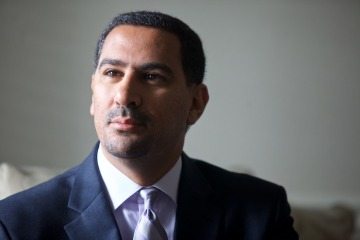
Over the next three years, Elibiary says he will work on his next project: a state-level think tank dealing with homeland security, a first in the U.S. His plan is to create “a matrix of what security capabilities exist in all 254 counties in Texas” so that “public policy folks in Texas in the state Legislature can begin to wrap their minds around, what exactly is the homeland security enterprise in Texas, and is it as efficient as it could be?”
Elibiary will also continue to do what perhaps few people from his background want to do: engage with those who distrust him the most. Though some conservative audiences might always see him as a traitor, Elibiary doesn’t aim to change personal opinions about himself, or even tackle bigotry against Muslims as a whole. Elibiary doesn’t seem to have much hope for individuals. He would rather focus on the system.
He recounts his role, during the Bush years, in reforming the National Suspicious Activity Reporting Initiative—you know, “If you see something, say something.” One of the suspicious activity reports he remembers was a Middle-Eastern-looking woman in a Walmart parking lot with her kids.
Elibiary laughs at the report, remarking that the person who called in the potential threat probably thought they were “stopping the next 9/11.” Elibiary doesn’t believe you can convince millions of Americans to change their views—to not view a woman wearing a hijab at a Walmart as a security threat. But he does believe, at the very least, that you can get the system to not take those views seriously.

